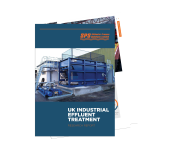 Across a mix of industries including the Food and Drink sector almost four-fifths (79%) of multisite companies and 60% of smaller operators are focused on reducing their energy costs over the next 12 months. This is according to research by Siltbuster Process Solutions, the waste water treatment specialists, who surveyed over 40 production heads in UK companies.
Across a mix of industries including the Food and Drink sector almost four-fifths (79%) of multisite companies and 60% of smaller operators are focused on reducing their energy costs over the next 12 months. This is according to research by Siltbuster Process Solutions, the waste water treatment specialists, who surveyed over 40 production heads in UK companies.
The study, UK Industrial Effluent Treatment, suggests that to reduce energy bills many are exploring the role waste and waste treatment can play, with 21% saying that they want to use waste for energy production and one in four investing in renewable energy.
This holistic view of waste is a welcome development according to SPS, which has long argued that effluent treatment should not be an ‘out of sight’ operation, but must be an integral part of corporate decision-making.
Clwyd Jones, Business Development Manager at SPS elaborates: “Every aspect of a company’s plans has an impact on waste treatment; whether its expanding plant through-put, reducing water usage, introducing new products, changing shift patterns or even a simple change to a product’s formulation – the effect on effluent can be significant. Waste isn’t simply something to be worried about; if carefully planned, waste treatment can be an enabler too. Of course, the major priority for everyone is meeting their environmental obligations, but a well-planned waste treatment strategy can help companies reduce their maintenance costs, plant down time, water and energy costs too. All things which are big priorities for the businesses we surveyed.”
Reducing energy bills is part of a wider cost saving agenda which 85% of food and drink processors are trying to deliver against. 82% want to reduce waste and 77% reduce water usage, almost three quarters plan to reduce maintenance costs and 56% reduce plant downtime.
Siltbuster Process Solutions’ team has helped several companies use their waste to generate energy. LacPatrick Dairies’ site at Ballyrashane had a high concentration of fat in waste water generated from the dairy’s milk and cream processing operations. Through deploying one of SPS’s lamella DAFs earlier in the treatment process to remove the fat, the dairy has improved the efficiency of its waste treatment downstream and the fat recovered by the DAF is mixed with other sludges from the plant, before being pumped to an offsite Anaerobic Digestion (AD) facility, where, due to its high calorific value, it is ideal for producing energy. Similarly, Dartmouth Foods, a producer and supplier of smoked meats to the UK market, used a Siltbuster DAF to not only maintain consent compliance but to also create feedstock for its AD plant.
A free copy of the UK Industrial Effluent Treatment, is available here or to find out more about waste treatment and energy production contact Siltbuster Process Solutions on 01600 772256.


